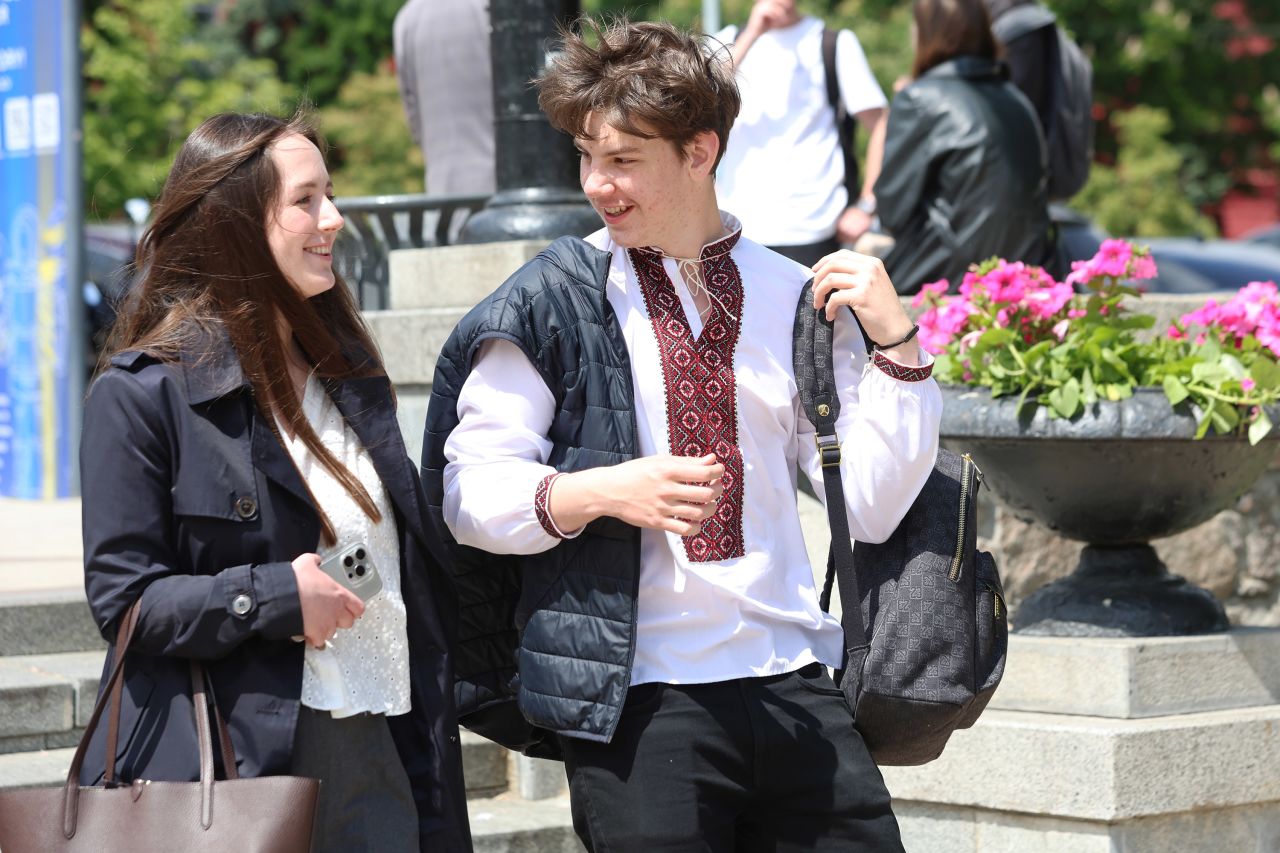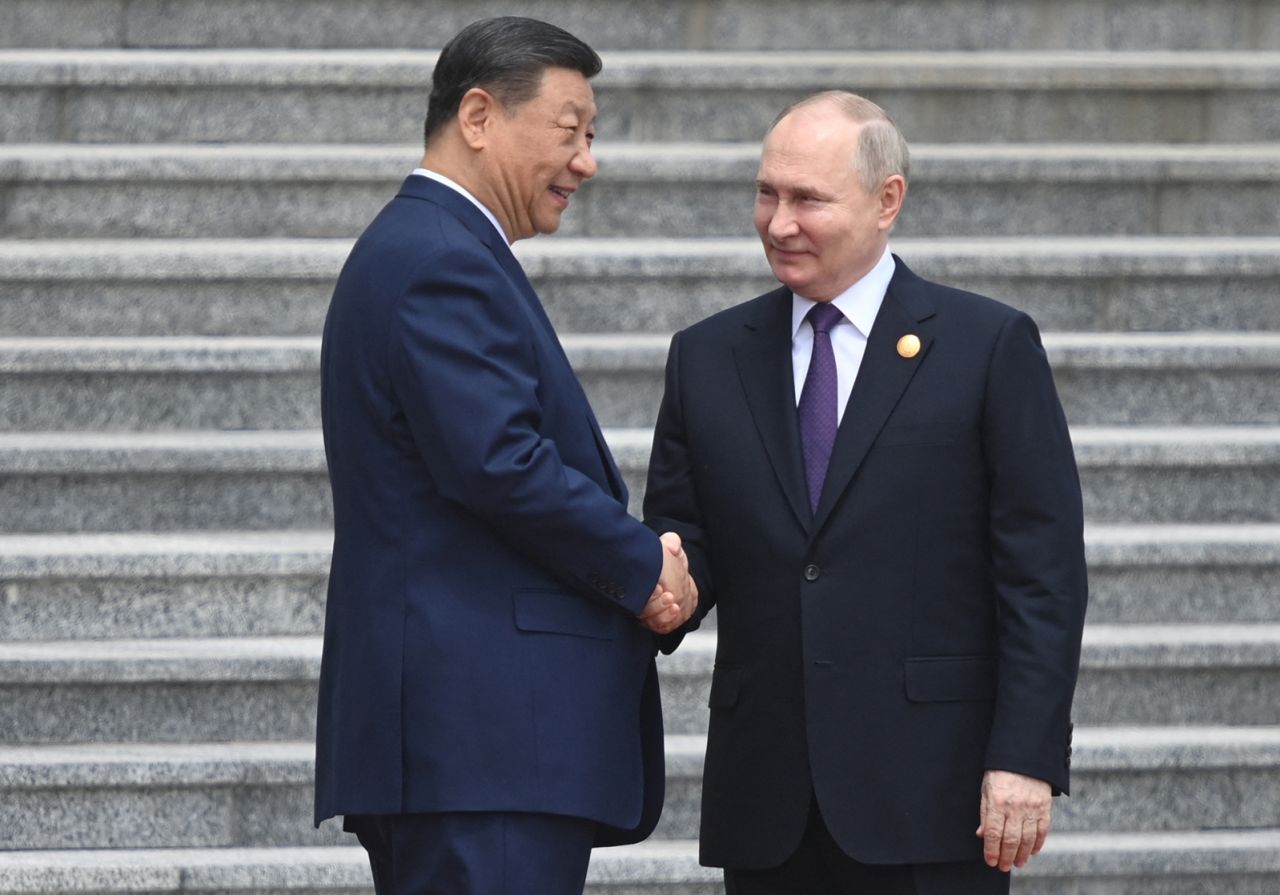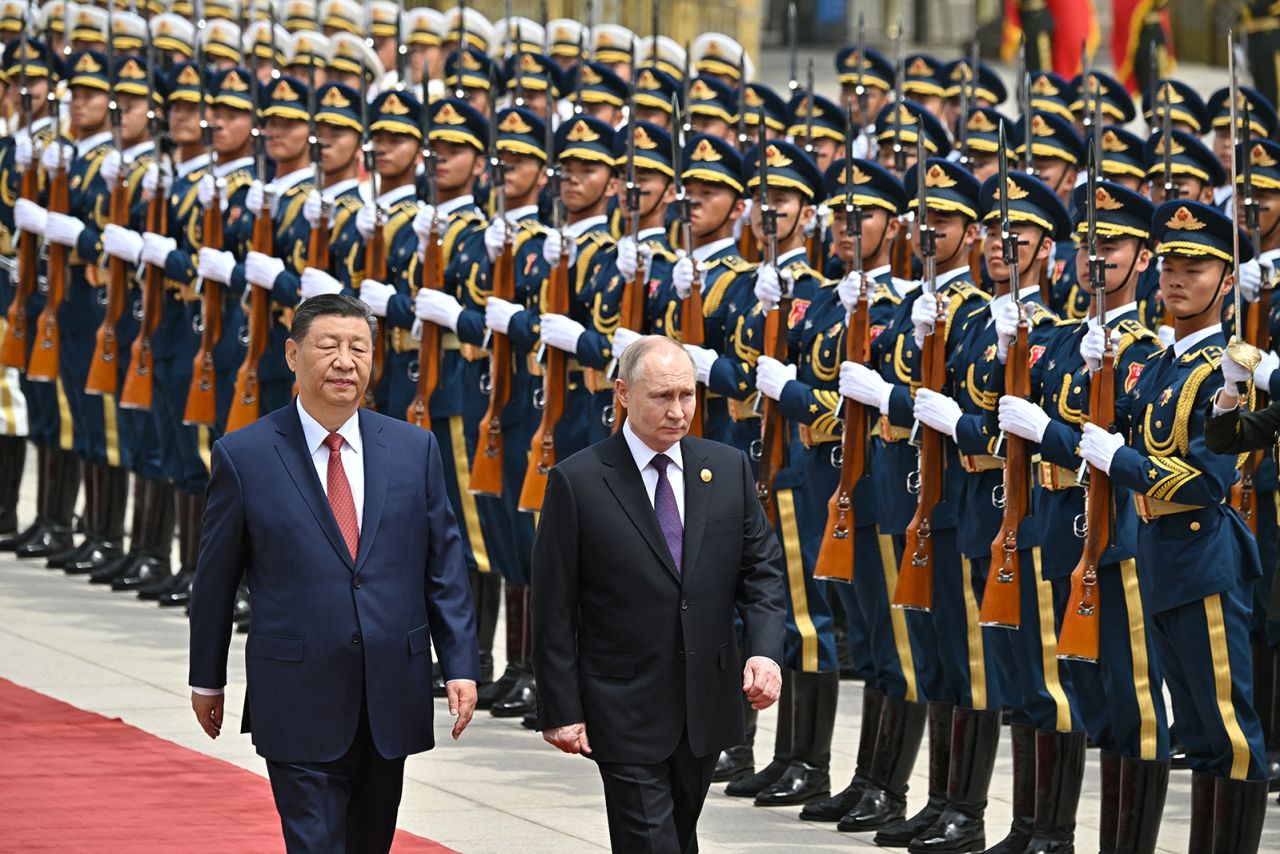US Secretary of State Antony Blinken performs "Rockin' in the Free World" with members of The 1999 band at the Barman Dictat bar in Kyiv, on May 14.
Brendan Smialowski/Pool/AP
Ukrainian band 19.99, who played a rendition of Neil Young’s “Rockin’ in the Free World” with Antony Blinken in Kyiv on Tuesday, said it was a “surreal situation” but they believe it sent an “important message.”
The US Secretary of State made the surprise appearance on stage in a bar in Kyiv as part of his visit to the Ukrainian capital, where he also met President Volodymyr Zelensky to discuss battlefield updates and the importance of US aid.
Dmitry Temnyi, lead singer of 19.99, told CNN’s Rosemary Church on Thursday that it was like a “fairytale” and praised Blinken as a “very good guitarist.”
“Now it’s just every day a struggle for our country and our culture… You need to keep going on, keep moving, do something to support our own family, our own people,” he said.
Drummer Mykyta Kovtunenko said the concert sent an “important message for support in these hard times” to all those watching on TV or online.
Blinken’s appearance at Barman Dictat — a popular underground cocktail bar and music venue just off Kyiv’s main street, Khreshchatyk — was kept a secret from the band until the last minute.
The group thought they might be playing with Neil Young as they had been asked to prepare his 1989 hit.
Guitarist Arsen Gorbach said they had received a message saying that “there won’t be Neil Young, there would be one VIP guest.”
“We were like, wow, interesting, who? And they texted us about Antony Blinken and we like ‘what a surrealistic situation’.”



















